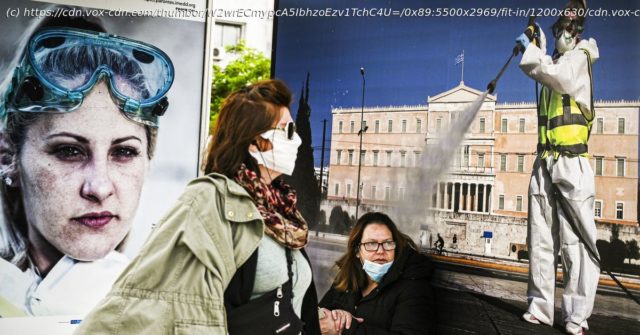8 non-coronavirus problems that are getting worse during the global health crisis
The pandemic’s collateral damage, briefly explained
The world’s attention has been focused on the coronavirus pandemic for the past couple of months, and rightly so. The global death toll has hit 285,000, the economy is in shambles, and our day-to-day lives are completely transformed. It’s obviously a huge deal.
But as we all focus on that, what other problems are being neglected and growing worse? What sort of collateral damage is the world incurring?
The secondary impacts of Covid-19 — including a possible “hunger pandemic” and “poverty tsunami” — are worth taking seriously. The number of deaths they cause, experts caution, could easily outstrip the number of deaths from Covid-19 itself.
That’s not an argument for taking Covid-19 less seriously, relaxing social distancing, or reopening the economy; in the US, epidemiologists emphasize that we are absolutely not ready to do that safely.
Instead, the point is that we’d do well to adopt a wider-angle view on human suffering. When we think about this pandemic, it’s not just the direct effects we need to worry about, but also the secondary effects. In other words, while the coronavirus is a serious problem we need to pay attention to, these other issues are also serious problems that are neglected and that urgently require our attention.
Below are eight examples that are worth highlighting, though this list is by no means exhaustive.
People are putting off getting vaccinations for themselves and their children because they’re afraid to be exposed to Covid-19. In many cases, even if people want to come in, hospitals and clinics are asking them to stay home.
“National immunization programs in more than two dozen countries have been suspended, which could also leave more than 100 million children vulnerable,” the New York Times reported.
If kids don’t get their shots, that puts them at risk of preventable life-threatening illnesses like measles, polio, and diphtheria. Experts predict that we’re going to see these illnesses pop up more in coming years because immunization rates are falling during the pandemic.
In addition, the World Health Organization warns that coronavirus-related disruption to anti-malaria programs in sub-Saharan Africa could cause deaths from malaria there to double this year.
US doctors are alarmed to see a precipitous drop in the number of patients presenting with symptoms of heart attack and stroke. “Where are all of our patients? There’s nothing we’ve done overnight that has cured heart disease,” Martha Gulati, chief of cardiology at the University of Arizona, told STAT News. “My worry is some of these people are dying at home because they’re too scared to go to the hospital.”
For people experiencing heart attack or stroke symptoms, it’s crucial to seek treatment immediately. The earlier a patient is treated, the better chance there is of mitigating damage to the heart and brain and reducing the risk of paralysis.
Experts are also concerned that we’re going to see surging rates of sexually transmitted infection (STI) and that the fight against HIV will probably take a hit because people are not going in for testing. “We are seeing a complete disruption to STD prevention here in the United States,” David Harvey, executive director of the National Coalition of STD Directors, told The Hill. “We expect to experience even higher STD rates as a result.”
When you think of elective procedures, you probably think of nose jobs or hip replacements — things that can be deferred without putting anyone’s life in danger. But as ProPublica explained, the category extends far beyond that: “Elective surgery is, by definition, any surgery that is scheduled. That means cancer surgery, organ transplants, and other lifesaving procedures, all of which are now put on hold.”
That’s in part because many hospitals have a shortage of personal protective equipment, and they’re trying to preserve it all for doctors and nurses treating Covid-19. They’re also trying to keep ventilators and ICU beds free for Covid-19 patients, particularly in areas that have been hit hard by the virus.
The American College of Surgeons has found itself in the position of having to recommend that removal of cancerous colon polyps be delayed for three months and breast cancer surgery be postponed if hormone therapy can help in the meantime.
Many heartbreaking stories have emerged as a result. To pick just one: Zach Branson is a 33-year-old in Colorado who was born with a rare disease and therefore needed a new liver.






